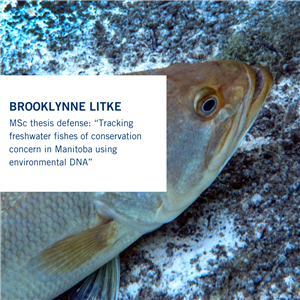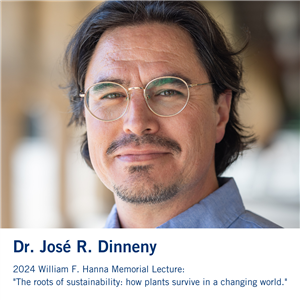Dr. Brian Mark welcomes you to the Faculty of Science, located in the heart of Treaty 1 territory, the original lands of the Anishinaabeg, Cree, Oji-Cree, Dakota, and Dene peoples, and on the homeland of the Métis Nation. At the Faculty of Science, we take seriously our mission to train the next generation of scientists and to help educate all those who come to the University of Manitoba – the scientists, engineers, physicians, nurses, lawyers, accountants, entrepreneurs, CEOs, social scientists, artists, educators and more. We believe science is for everyone. Join us as we discover the unknown and invent the future.
News and stories
UMToday
View more news and stories-

Announcing the first ever Green Investment Fund recipients
Sustainability, UM Today
-

Winnipeg Free Press: Annual awards celebrate volunteers’ commitment, passion
Faculty of Science, UM Today
-

Join us for the 2024 Computer Science Alumni and Industry Symposium
Faculty of Science
-

UM Eclipse viewing party media coverage
Faculty of Science, UM Today
What we offer
Departments
-
Biological Sciences
Gain a solid understanding of all aspects of life from biomolecules to ecosystems through research on biodiversity, ecological and environmental biological research; cellular and developmental biological research; and physiological research.
-
Chemistry
Explore the educational opportunities to prepare for a future in biochemistry, energy research, materials science, disease detection, pharmacology, and many other areas.
-
Computer Science
Prepare for careers in gaming, software engineering, AI, bioinformatics, data mining, security, and much more. Compete in international competitions and participate and gain paid work experience through Computer Science Co-op.
-
Mathematics
Expand your reasoning and analytic tools with Mathematics being at the heart of all other scientific disciplines. Gain skills that a wide range of business, industrial, and government programs rely on to provide insight and analysis.
-
Microbiology
Learn about viruses, bacteria, fungi, and how they affect the resilience of the environment, and the health of humans, animals, and plants. Prepare for careers in biotechnology, medical microbiology, agriculture, and academia/education.
-
Physics and Astronomy
Delve into educational opportunities to explore galactic dynamics or unstable atomic nuclei. From theoretical to experimental physics, develop knowledge of matter, motion, space, and time and prepare for a wide variety of career opportunities.
-
Statistics
Understand statistical methods and concepts, mathematics, and critical thinking from a variety of perspectives. Prepare for diverse and rewarding careers collecting, analyzing, and interpreting data.
Centres, institutes and facilities
Research innovation and industry partnerships
Science is the bedrock underlying discovery and innovation. Through the Science Innovation Hub, the Faculty of Science offers a broad range of expertise, supports and services to connect researchers and students with opportunities to innovate, and launch new ideas.
Equity, diversity, and inclusion
Events
-

MSc thesis defense: Brooklynne Litke
May1-
10:00 amto12:00 pm
-
-

William F. Hanna Memorial Lecture Series: Dr. José R. Dinneny (Stanford University)
May2-
07:00 pmto08:00 pm
-
-

Department of Computer Science Alumni and Industry Symposium
May3-
06:00 pmto09:30 pm
-
-

Centre on Aging 41st Annual Spring Research Symposium
May8-
09:00 amto04:00 pm
-
-

Science Rendezvous
May11-
11:00 amto03:00 pm
-
-

Voluntary withdrawal deadline for Winter/Summer Term classes
May16-
12:00 am
-
Nobel Laureates and Prize recipients

Dr. James Peebles
Dr. James Peebles, was born in St. Boniface and obtained his Bachelor of Science (Hons) from the University of Manitoba in 1958. He went on to study at Princeton University where he obtained his Doctorate and continued his research in cosmology while teaching physics as the Albert Einstein Professor of Science.
Dr. Peebles first achieved recognition by predicting, with a colleague, that evidence for the big bang should still be observable, in the form of cosmic microwave background radiation. But Dr. Peebles’ major life work was on the clustering of galaxies in space. He learned how to extract information on clustering from catalogues of galaxy positions and showed how to use this information to test theories of galactic formation.
More about Dr. James Peebles
Peebles is also a prolific donor to UM and its Front and Centre Campaign. Having been the recipient of financial support during his undergrad, Peebles has given back in gratitude over the past three decades to initiatives like the Centennial Scholarship in Physics and the Isbister Undergraduate Scholarships (which he received twice while pursuing his UM degree).
In recognition of his extraordinary scientific achievements, the University of Manitoba has renamed the Science and Technology Library to the Jim Peebles Science and Technology Library.
Our alumni
Dean's office
-

-
-
- Deans and associate deans
- Department heads
- Confidential assistants to the deans
- Academic advisors
- Academic scheduling
- Communications, marketing and engagement
- Finance and Human Resources (HR)
- Information Technology (IT)
- Research and industry
- Safety
- Science Co-op
- Science technical services and stores
- Wawatay - community and integrated
Contact us
-
Academic advising inquiries:
Science academic advising
If you cannot access what you need from our website, please call our office at 204-474-8256 during business hours, Monday to Friday, 8:30 a.m. – 4 p.m.
Our office
Faculty of Science
230 Machray Hall, 186 Dysart Rd
University of Manitoba
Winnipeg, Manitoba R3T 2N2 Canada













